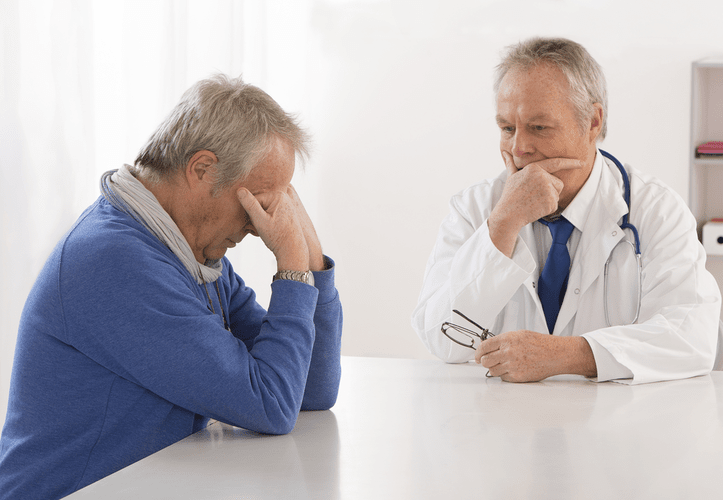Content
Just as some people with diabetes or asthma may have flare-ups of their disease, a relapse to drinking can be seen as a temporary setback to full recovery and not a complete failure. Seeking professional help can prevent relapse—behavioral therapies can help people develop skills to avoid and overcome triggers, such as stress, that might lead to drinking. Most people benefit from regular checkups with a treatment provider. Medications also can deter drinking during times when individuals may be at greater risk of relapse (e.g., divorce, death of a family member). There are thousands of drug and alcohol treatment centers across the country.
All three of these therapies have demonstrated their effectiveness. Psychologists can also diagnose and treat these “co-occurring” psychological conditions. Further, a psychologist may play an important role in coordinating the services a drinker in treatment receives from various health professionals.
What are the symptoms of alcohol use disorder?
A drinking relapse doesn’t mean you’re a failure or that you’ll never be able to reach your goal. Each drinking relapse is an opportunity to learn and recommit to sobriety, so you’ll be less likely to relapse in the future. When you drink, sip slowly and take a break of 30 minutes or one hour between drinks. Drinking on an empty stomach is never a good idea, so make sure you eat food when you drink. By Buddy T
Buddy T is a writer and founding member of the Online Al-Anon Outreach Committee with decades of experience writing about alcoholism.

In other cases, doctors without a background in addiction may worry that they don’t have the expertise to treat alcoholism. The most severe form of alcohol withdrawal is delirium tremens (DTs), characterized by altered mental status and severe autonomic hyperactivity that may lead to cardiovascular collapse. Only about 5 percent of patients with alcohol withdrawal progress to DTs, but about 5 percent of these patients die. There are factors that pop up again and again when determining who might have an issue with alcoholism. The first factor is the age at which a person has his or her first drink (the younger people are when they first start drinking, the more likely they are to drink more heavily into adulthood); the other factors are genetics and environment. If you’re in the “at-risk” population, it doesn’t take much to become dependent on alcohol or other drugs.
Understanding alcohol use disorders and their treatment
We have included lots of editable resources so that your speech is clear and visual. Part B should cover outpatient substance use disorder care you receive from a clinic, hospital outpatient department, or opioid treatment program. Note that some substance use disorder treatment can also be provided using technology services, sometimes called telehealth. This medication may be able to help those who stop drinking alcohol and need help with cognitive function. Long-term alcohol misuse damages the brain’s ability to function properly.
- Campral did not perform better than the placebo or dummy pill.
- For many people, using both types gives them the best results.
- Alcohol abuse and addiction impacts millions of Americans every year as it is the most widely abused substance in the United States and much of the world.
- Certain medications have been shown to effectively help people stop or reduce their drinking and avoid relapse.
They also provided hair and fingernail samples to confirm that they had not been drinking. All participants were then offered a third session of psilocybin to ensure that those who previously received a placebo had the chance to be treated with the psychedelic drug. Fortunately, https://www.excel-medical.com/5-tips-to-consider-when-choosing-a-sober-living-house/ programs can be highly effective when conducted by top-notch treatment facilities, and future patients have many treatment options to choose from. Obtaining treatment from qualified inpatient rehab facilities can assist in an individual’s journey to recovery.
NYU Langone to Study Ability of Overdose Prevention Centers to Counter Unprecedented Overdose Crisis
People who have alcohol use disorder drink regularly and in large amounts. When their bodies don’t have alcohol, they experience withdrawal symptoms. In 1948, Danish researchers trying to find treatments for parasitic stomach infections discovered the alcohol-related effects of disulfiram when they too became ill after drinking alcohol. The researchers began a new set of studies on using disulfiram to treat alcohol dependence.

Various factors such as your medical history, support system and personal motivation can all play a role in the success of your recovery. Treatment should be supervised by a team of medical specialists at a rehab facility. Throughout the country, alcohol treatment centers are staffed with professionals who will guide you through each step of the recovery process – from detox to life after rehab.
Examples of alcohol treatment programs
It may also be taken once every other day, once every third day, or once every day except Sunday (or other designated day of the week). If a patient forgets to take a dose and it is not close to the time when the next dose is taken, they should take the dose as soon as possible. Patients should not double up to make up for a missed dose, however. More than three quarters of all foster children in the United States are children of alcohol- or drug-dependent parents. From 60–70% of reported domestic violence incidents involve alcohol.
What is the first stage of treatment for addiction?
In the early stage of treatment, clients may be in the precontemplation, contemplation, preparation, or early action stage of change, depending on the nature of the group. Regardless of their stage in early recovery, clients tend to be ambivalent about ending substance use.
For the investigation, the research team recruited men and women who were diagnosed with alcohol dependence based on standard definitions and consumed on average seven drinks on days when they drank. Forty-eight patients received at least 1 dose and up to 3 doses of psilocybin, and 45 patients received the antihistamine placebo. Two doses of psilocybin, a compound found in psychedelic mushrooms, reduces heavy drinking by 83 percent on average among heavy drinkers when combined with psychotherapy, a new study shows. In many programs, the majority of patients will eventually relapse at some point. There are one-time moments of weakness, and there are complete returns to a life of addiction.
Leave A Comment